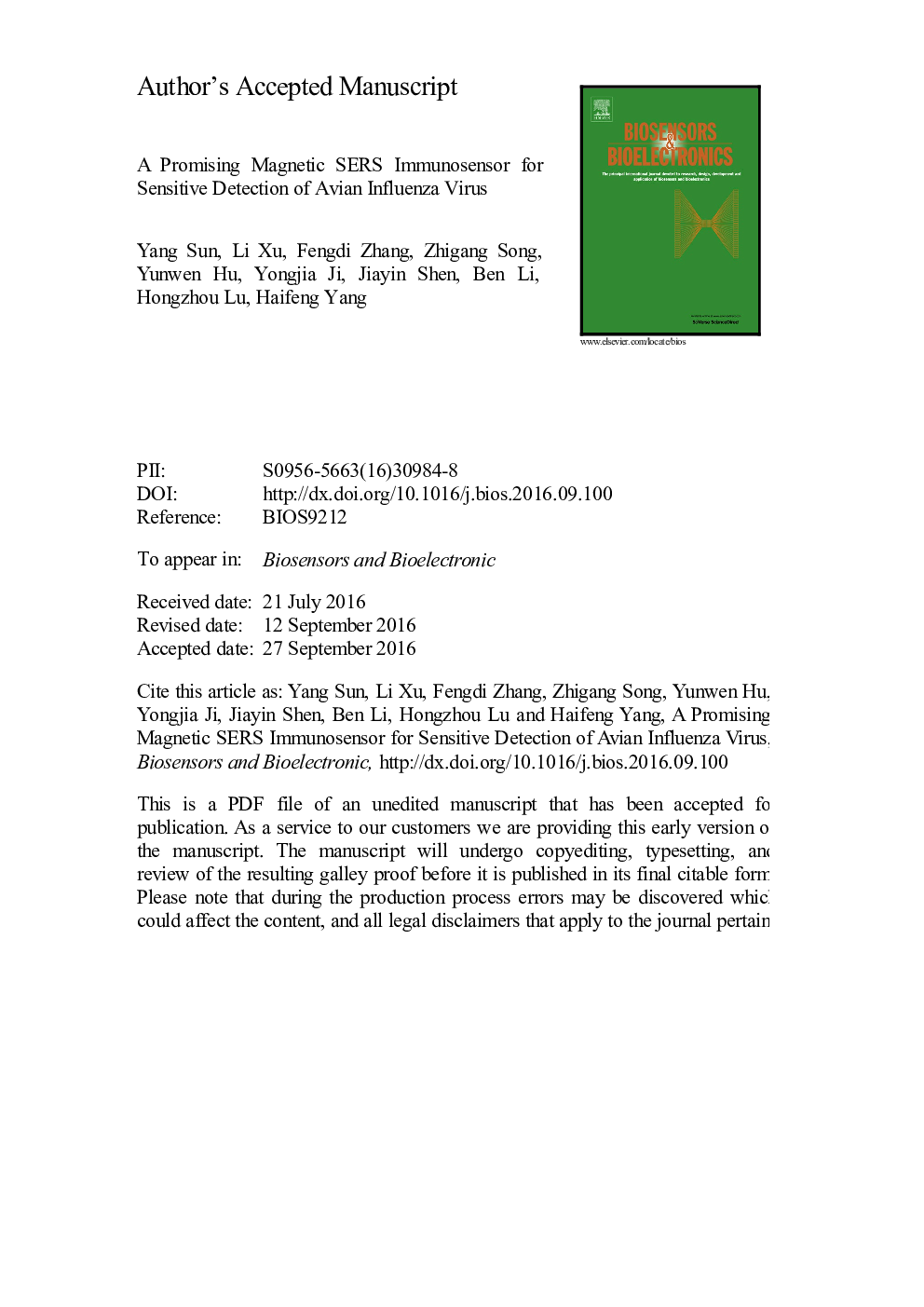| Article ID | Journal | Published Year | Pages | File Type |
|---|---|---|---|---|
| 5031455 | Biosensors and Bioelectronics | 2017 | 28 Pages |
Abstract
Avian influenza viruses infect a great number of global populations every year and can lead to severe epidemics with high morbidity and mortality. Facile, rapid and sensitive detection of viruses is very crucial to control the viral spread at its early stage. In this work, we developed a novel magnetic immunosensor based on surface enhanced Raman scattering (SERS) spectroscopy to detect intact but inactivated influenza virus H3N2 (A/Shanghai/4084T/2012) by constructing a sandwich complex consisting of SERS tags, target influenza viruses and highly SERS-active magnetic supporting substrates. The procedure of sample pretreatment could be significantly simplified since the magnetic supporting substrates allowed the enrichment and separation of viruses from a complex matrix. With a portable Raman spectrometer, the immunosensor could detect H3N2 down to 102Â TCID50/mL (TCID50 refers to tissue culture infection dose at 50% end point), with a good linear relationship from 102 to 5Ã103 TCID50/mL. Considering its time efficiency, portability and sensitivity, the proposed SERS-based magnetic immunoassay is very promising for a point-of-care (POC) test in clinical and diagnostic praxis.
Keywords
Related Topics
Physical Sciences and Engineering
Chemistry
Analytical Chemistry
Authors
Yang Sun, Li Xu, Fengdi Zhang, Zhigang Song, Yunwen Hu, Yongjia Ji, Jiayin Shen, Ben Li, Hongzhou Lu, Haifeng Yang,
